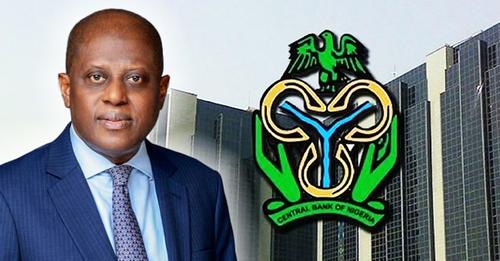Business
CBN Poised To Slow Down Rate Hikes

The Central Bank of Nigeria (CBN) Governor, Dr. Olayemi Cardoso, has said the bank will soon be able to slow down increases in the benchmark interest rate.
Cardoso said this in Lagos at the launch of a book titled “The Power of One Man: How the Soludo-Engineered Consolidation Transformed Nigerian Banks to Global Players”, authored by Ray Echebiri.
The CBN Governor, represented by the CBN’s Deputy Governor of Financial Stability, Phillip Ikeazor, said it was important to keep the rates up to curtail the risk of hyperinflation and its consequences.
He said, “Once you do not tame and control inflation and you get into hyperinflation, it takes you several years to get out of it. There is still a South American country that still has significant oil reserves but they are in hyperinflation and I think everyone is aware of what is happening in that economy.
“We have another country in East Africa which is also in hyperinflation. We know how hard they are struggling to get out of that.
“For us as a Central Bank, we are focusing on our core mandate of price stability, maintaining a stable exchange rate, and, of course, economic growth. But it is a question of sequencing.
“It is very important that we do not enter hyperinflation. Once you enter hyperinflation, the transmission of monetary economic tools will become completely ineffective. It is important that we avoid that”.
On how long the rate hikes will be maintained, the regulator said, “That will be as long as we can control and can reverse galloping inflation. Once we can do that, then we maintain.
“We are all aware that in the Western world, we did have rate hikes to be able to control theirs and they maintained it for a very long time. It is only now that they have stopped rate hikes but they have not even started dropping the rates as we speak.
“It is important that we tighten and hold on for a little while and in no distant future, we will be able to slow down on the rate hikes”.
Cardoso had in May stated that the apex bank would sustain interest rate hikes until inflation was tamed.
In a Financial Times report, Cardoso noted that there was “every indication” that MPC would “do whatever is necessary” to rein in inflation.
“They will continue to do what has to be done to ensure that inflation comes down. Let’s face it: for a long period of time, the CBN did not embrace orthodox monetary policies.
“We want to go back to using an orthodox method, and it will take us to where we want to go”, he stated.
According to the National Bureau of Statistics, in May 2024, the headline inflation rate increased to 33.95 per cent relative to 33.69 per cent in April.
In May, the Monetary Policy Committee of the CBN increased the benchmark lending rate by 150 basis points to 26.25 per cent from 24.75 per cent.
Meanwhile, former President Olusegun Obasanjo had advocated for appropriate fiscal and monetary policy synergy that would help revolutionise the banking industry and achieve economic stability.
“To sustain this growth, there must be appropriate consultations between fiscal and monetary authorities”, he said.
Obasanjo, who was represented by former Cross River State Governor, Donald Duke, also hailed the courage of Anambra State Governor and former CBN Governor, Professor Chukwuma Soludo, in executing the 2005 banking sector consolidation, saying, “The consolidation initiated by Soludo was a courageous and necessary move. It has significantly contributed to the stability and growth of our banking sector”.
Lagos State Governor, Babajide Sanwo-Olu, also lauded Soludo’s efforts but highlighted the current economic challenges.
He urged the CBN to take decisive actions to stabilise the economy, particularly in managing interest rates and inflation, to alleviate the pressures faced by the private sector.
“The private sector is currently experiencing tough times due to various economic challenges. The CBN must take swift and effective measures to stabilise the economy. Learning from the past reforms can guide us through these turbulent times”, Sanwo-Olu said.
In his remarks, Soludo recounted the challenges faced during the 2005 consolidation, but expressed pride in the achievement and urged the current CBN leadership to remain resolute in their efforts to recapitalise the banks to keep pace with the expanding economy.
Transport
Automated Points Concession : FAAN Workers Gave 72hrs To Revise Decisions In PH

Transport
FAAN Announces Pick-Up Points for Go-Cashless Cards

Business
Fidelity Bank To Empower Women With Sustainable Entrepreneurship Skills, HAP2.0
-
Politics4 days ago
2027: NIGERIANS FAULT INEC ON DIGITAL MEMBERSHIP REGISTER DIRECTIVE
-

 Environment4 days ago
Environment4 days agoLAWMA Director Says Sweeping Reforms Have Improved Waste Collection
-
Politics4 days ago
LP Crisis: Ex-NWC Member Dumps Dumps Abure Faction
-

 Politics4 days ago
Politics4 days agoUmahi Dismisses Allegations On Social Media, Insists On Projects Delivery
-

 Sports4 days ago
Sports4 days agoAbia Not Sure To Secure continental Ticket
-
Politics4 days ago
NATASHA ELECTRIC VEHICLES INITIATIVE IN KOGI CENTRAL
-
Sports4 days ago
La Liga: Yamal Records First Career Hat-trick
-
Politics4 days ago
IT’S A LIE, G-5 GOVS DIDN’T WIN ELECTION FOR TINUBU – SOWUNMI

